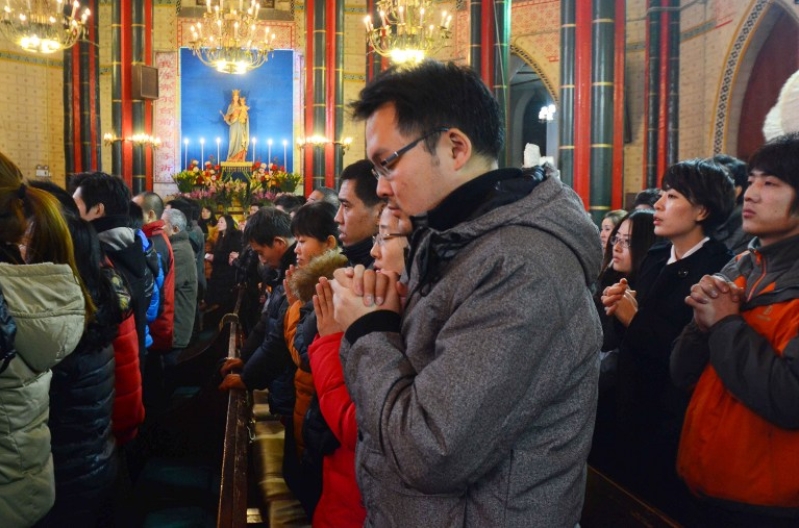
Government leaders in China's northwestern Xinjiang province have re-upped efforts to stunt the rapid growth of Christianity, raiding several house churches and detaining numerous Christians and their families.
According to a report from China Aid, an organization dedicated to exposing cases of religious freedom abuse in order to stand in solidarity with persecuted Christians in China, officials raided several churches throughout Hetian, one of the province's southernmost cities, and took many Christians to the police station for interrogation about their church's religious affairs.
While the Christians were released, they later received summons for further questioning, and were held for several hours at the police station.
A short time later, Cele County police station dispatched officers to the home of Pastor Zhong Shuguang, who had recently posted an online message declaring Christians have no religious freedom in Xinjiang.
While he evaded detention because he happened to be traveling at the time, authorities took his wife, Lü Yingli, into custody, and released her the following day.
While authorities were unable to charge Zhong or his congregation with any wrongdoing, the pastor has in the past been targeted by Communist leaders. In 2012 and 2013, authorities detained and fined Zhong three times for organizing religious gatherings and confiscated his property.
China Aid notes that despite his troubles, in a recent prayer, Zhong expressed his desire that officials throughout Hetian come to a better understanding of Christianity, so that Christians could live without fear. He also prayed for persecuted Christians to be endowed with confidence, tenderness, eloquence and a loving heart so that they may defend their faith.
Another Christian family was recently blacklisted for their faith by local authorities: Pastor Lou Yuanqi and his family were recently prevented from buying train tickets even after displaying their ID cards, and a police checkpoint refused to grant them entrance. Authorities also confined the family to their home, refusing to allow them to leave.
"The day before yesterday, [the officials] called and asked our children to return," Lou said. "Our children do not live at home; only one daughter lives at home. The rest of our children are in Urumqi. The public security bureau called us and asked us to tell them to come home. I asked why, and they said to gather their information, take their pictures and conduct blood tests. I said they have all married and started their careers ... this is too unreasonable to do. A while ago, they even took away my ID card and returned it later."
Christians in China have seen an uptick in persecution since the Xi administration came into power three years ago. Last year, the president warned that religions must be independent from foreign influence and said that the Communist party's religious work should be about winning over the hearts and minds of the public.
"We must manage religious affairs in accordance with the law and adhere to the principle of independence to run religious groups on our own accord," he said. "Active efforts should be made to incorporate religions into socialist society."
Over the past several years, an unprecedented number of church leaders have been imprisoned, sent to mental institutions, beaten and tortured. Thousands of crosses have also been forcibly removed from over 1,800 churches since 2014.
However, a shocking graph released last year revealed that despite China's oppression of Christians, terms such as "Jesus" and "God" were trending far more than Communist terms such as "Chairman Mao" and "Xi Jinping" - even though he is daily featured in the state newspaper.
In addition, "Christian congregation" received 41.8 million hits, while "the Communist Party" only garnered 5.3 million.







